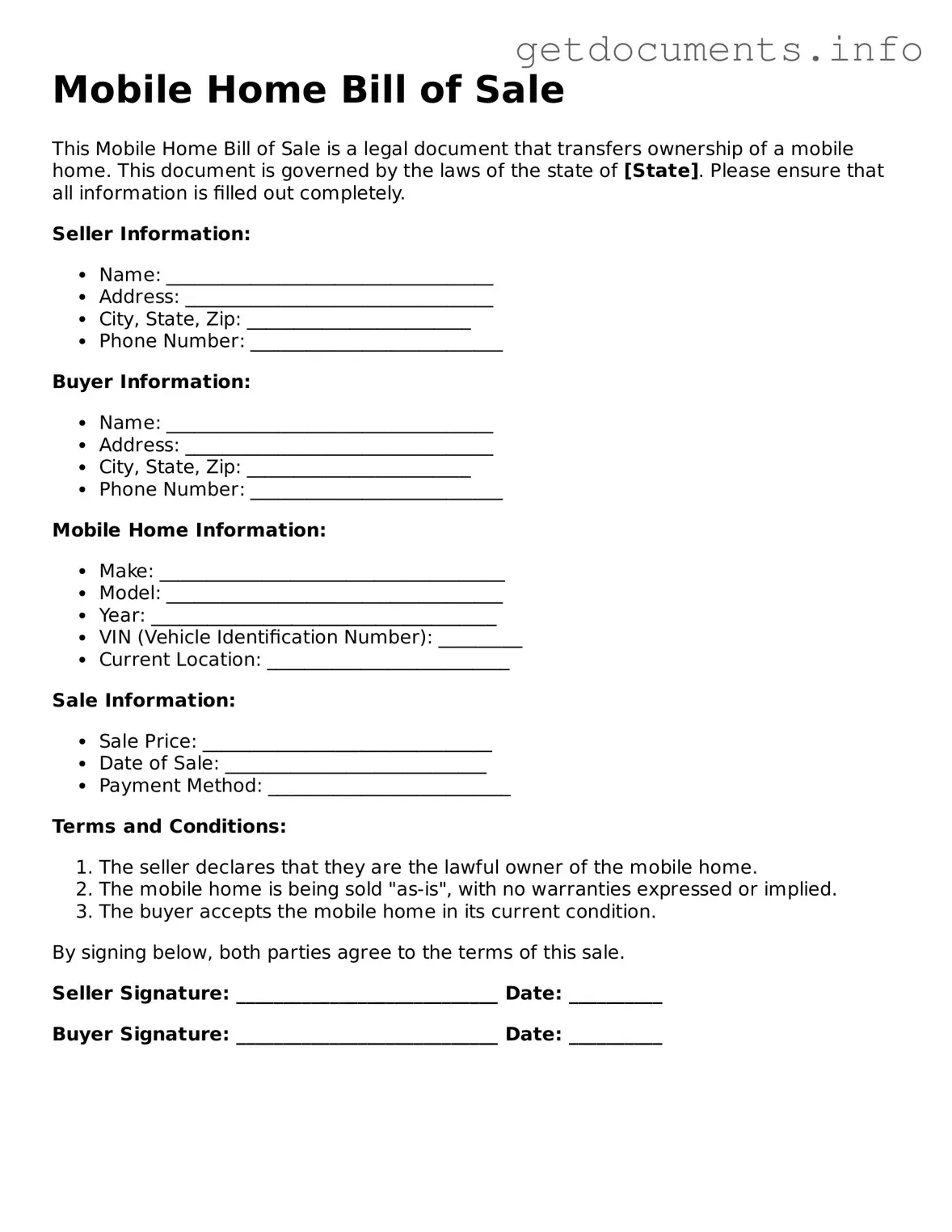Printable Mobile Home Bill of Sale Document
A Mobile Home Bill of Sale is a legal document that transfers ownership of a mobile home from one party to another. This form serves as proof of the transaction and includes essential details about the mobile home and the parties involved. Understanding how to properly complete this form is crucial for a smooth transfer of ownership.
To get started, fill out the form by clicking the button below.
Access Mobile Home Bill of Sale Editor

Printable Mobile Home Bill of Sale Document
Access Mobile Home Bill of Sale Editor
Got places to be? Complete the form fast
Fill out Mobile Home Bill of Sale online and avoid printing or scanning.
Access Mobile Home Bill of Sale Editor
or
⇩ PDF File
